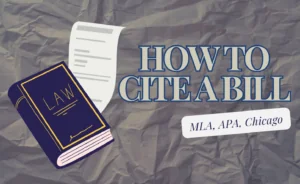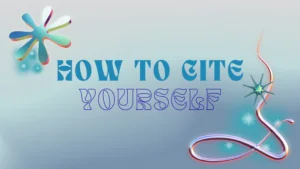Ever wondered how to properly cite a speech in your essay or research paper using MLA format? MLA, or Modern Language Association style, is commonly used in humanities studies because it supports the clear presentation of ideas and respects the uniqueness of cultural expressions. When you write about literature, arts, or any humanistic discourse, citing sources correctly is important to provide your readers with enough information to find those sources themselves. This is particularly true for speeches, that are significant in terms of humanities topics. This guide will walk you through the simple steps to cite speeches in MLA format, so that your academic work is both thorough and respectful to original sources.

✅ AI Essay Writer ✅ AI Detector ✅ Plagchecker ✅ Paraphraser
✅ Summarizer ✅ Citation Generator
Types of Speeches You Can Cite
When you’re writing something that needs sources, citing speeches can really beef up your paper. But it’s important to pick the right ones. You’ll want to go for speeches that have some weight like official talks given at conferences, public addresses by leaders, or expert lectures. These are usually recorded or written down somewhere, so they’re easy to check and cite.
However, not every speech makes the cut. You should steer clear of citing stuff like offhand comments or anything said in a super casual setting. Also, if you can’t find any record of the speech or if it’s from a private event, it’s probably best to leave it out. Citing reliable and accessible speeches strengthens your arguments and keeps your work credible. So, when you’re choosing speeches to cite, think about whether they’re the kind that will help build a strong case for your paper. Here’s a little TLDR to refer to:
| ✅ Appropriate for Citation | ❌ Not Appropriate for Citation |
|---|---|
| Keynote addresses at conferences | Off-the-cuff remarks at informal gatherings |
| Public speeches by government officials | Casual comments made in social settings |
| Presentations at academic symposia | Private speeches not intended for public release |
| Lectures by subject matter experts | Undocumented personal communications |
| Panel discussions at professional meetings | Any speech without a verifiable source or transcript |
Citing a Speech in the Works Cited Page MLA
Including a speech in your works cited page might seem tricky, but it’s pretty straightforward once you know what details to note. Whether you heard the speech in person, listened to it via a recording, or read its transcript, each scenario has its own citation format. Here’s how to handle each one:
Citing a Speech Heard Firsthand

Citing a Speech Accessed Through a Recording

Citing a Speech Read in a Transcript

Each format helps you provide enough information about where and how the speech was delivered, making your work credible and well-documented. Stick to these guidelines, and you’ll have no trouble citing speeches in your works cited page!
In-text Citations for a Speech in MLA
Citing a speech within the text of your paper can really back up your points, especially when using an MLA citation generator. Whether you’re quoting directly or paraphrasing, the way you cite should clearly point your readers to the specific speech you’re referring to. Here’s how to do it:
For direct quotes, include the speaker’s last name and the specific part or point in the speech you’re quoting, if available. If not, just use the last name. For example, if you’re quoting Alice Johnson’s speech directly, you would write it like this in the text:
Alice Johnson asserts, “Renewable energy is the undeniable future of our planet” (Johnson).
For paraphrasing, you’ll also need the speaker’s last name, and it’s good practice to mention part of the speech’s context to help locate it. Here’s how you might paraphrase content from the same speech by Alice Johnson without directly quoting:
Alice Johnson discussed the critical importance and inevitability of renewable energy in her recent speech at the Green Tech Conference (Johnson).
In both cases, the idea is to make it easy for anyone reading your paper to understand who said what, even if they don’t have direct access to the speech itself. And that’s pretty much it!
FAQ
Follow us on Reddit for more insights and updates.





Comments (0)
Welcome to A*Help comments!
We’re all about debate and discussion at A*Help.
We value the diverse opinions of users, so you may find points of view that you don’t agree with. And that’s cool. However, there are certain things we’re not OK with: attempts to manipulate our data in any way, for example, or the posting of discriminative, offensive, hateful, or disparaging material.